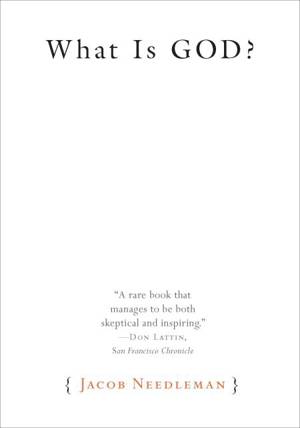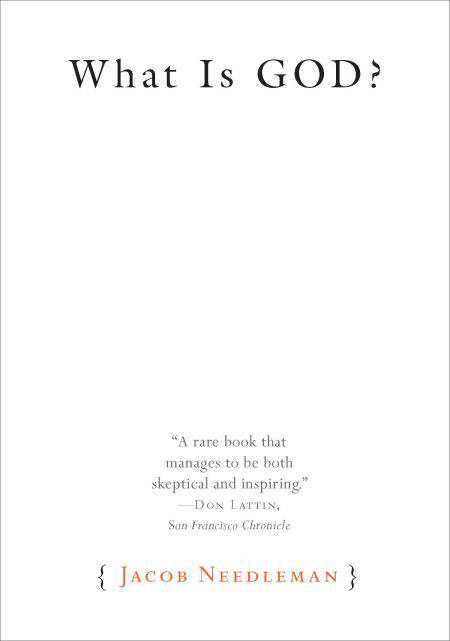
- Retrait gratuit dans votre magasin Club
- 7.000.000 titres dans notre catalogue
- Payer en toute sécurité
- Toujours un magasin près de chez vous
- Retrait gratuit dans votre magasin Club
- 7.000.0000 titres dans notre catalogue
- Payer en toute sécurité
- Toujours un magasin près de chez vous
Description
In his most deeply personal work, religious scholar Needleman cuts a clear path through today?s clamorous debates over the existence of God, illuminating an entirely new way of approaching the question of how to understand a higher power.
I n this new book, philosopher Jacob Needleman? whose voice and ideas have done so much to open the West to esoteric and Eastern religious ideas in the twentieth and twenty-first centuries?intimately considers humanity?s most vital question: What is God?
Needleman begins by taking us more than a half century into the past, to his own experience as a brilliant, promising, Ivyeducated student of philosophy?atheistic, existential, and unwilling to blindly accept childish religiosity. But an unsettling meeting with the venerated Zen teacher D. T. Suzuki, combined with the sudden need to accept a dreary position teaching the philosophy of religion, forced the young academician to look more closely at the religious ideas he had once thought dead. Within traditional religious texts the scholar discovered a core of esoteric and philosophical ideas, more mature and challenging than anything he had ever associated with Judaism, Christianity, and the religions of the East.
At the same time, Needleman came to realize?as he shares with the reader?that ideas and words are not enough. Ideas and words, no matter how profound, cannot prevent hatred, arrogance, and ultimate despair, and cannot prevent our individual lives from descending into violence and illusion. And with this insight, Needleman begins to open the reader to a new kind of understanding: The inner realization that in order to lead the lives we were intended for, the very nature of human experience must change, including the very structure of our perception and indeed the very structure of our minds.
In What Is God?, Needleman draws us closer to the meaning and nature of this needed change?and shows how our present confusion about the purpose of religion and the concept of God reflects a widespread psychological starvation for this specific quality of thought and experience. In rich and varied detail, the book describes this inner experience?and how almost all of us, atheists and ?believers? alike, actually have been visited by it, but without understanding what it means and why the intentional cultivation of this quality of experience is necessary for the fullness of our existence.
I n this new book, philosopher Jacob Needleman? whose voice and ideas have done so much to open the West to esoteric and Eastern religious ideas in the twentieth and twenty-first centuries?intimately considers humanity?s most vital question: What is God?
Needleman begins by taking us more than a half century into the past, to his own experience as a brilliant, promising, Ivyeducated student of philosophy?atheistic, existential, and unwilling to blindly accept childish religiosity. But an unsettling meeting with the venerated Zen teacher D. T. Suzuki, combined with the sudden need to accept a dreary position teaching the philosophy of religion, forced the young academician to look more closely at the religious ideas he had once thought dead. Within traditional religious texts the scholar discovered a core of esoteric and philosophical ideas, more mature and challenging than anything he had ever associated with Judaism, Christianity, and the religions of the East.
At the same time, Needleman came to realize?as he shares with the reader?that ideas and words are not enough. Ideas and words, no matter how profound, cannot prevent hatred, arrogance, and ultimate despair, and cannot prevent our individual lives from descending into violence and illusion. And with this insight, Needleman begins to open the reader to a new kind of understanding: The inner realization that in order to lead the lives we were intended for, the very nature of human experience must change, including the very structure of our perception and indeed the very structure of our minds.
In What Is God?, Needleman draws us closer to the meaning and nature of this needed change?and shows how our present confusion about the purpose of religion and the concept of God reflects a widespread psychological starvation for this specific quality of thought and experience. In rich and varied detail, the book describes this inner experience?and how almost all of us, atheists and ?believers? alike, actually have been visited by it, but without understanding what it means and why the intentional cultivation of this quality of experience is necessary for the fullness of our existence.
Spécifications
Parties prenantes
- Auteur(s) :
- Editeur:
Contenu
- Nombre de pages :
- 320
- Langue:
- Anglais
Caractéristiques
- EAN:
- 9781101152089
- Date de parution :
- 23-12-09
- Format:
- Ebook
- Protection digitale:
- Adobe DRM
- Format numérique:
- ePub

Les avis
Nous publions uniquement les avis qui respectent les conditions requises. Consultez nos conditions pour les avis.






